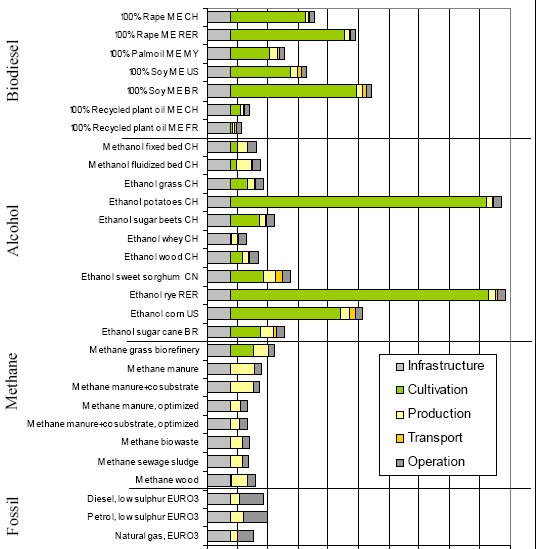

Senator Maria Cantwell (D-Wash.) will be speechifying today at 11:00am at the opening of the first of many biodiesel pumps to be installed in the Seattle area by Propel Biofuels. According to a press release I just received from Duff Badgely, there will also be a handful of protesters on hand to greet them. Don’t these people have anything better to do than to run around speaking truth to power?
In her speech, Cantwell will tell us all about how this fuel will fight global warming, reduce local air pollution, make us energy independent, and be made from crops grown by Washington State farmers. Here is a picture of Maria Cantwell, Patty Murray, Congressman Norm Dicks, and Imperium President John Plaza with looks of absolute glee on their faces at the grand opening in August of the largest industrial agridiesel refinery in North America.
Never mind that according to a recent paper in Science, one in the Journal of Atmospheric Chemistry and Physics, and this paper (PDF) co-authored by Ron Steenblik, the fuel being served at this pump is far more environmentally destructive than the fuel it replaces. The peer-reviewed paper in Science says it will release about five times more carbon over a thirty-year period than if you had simply let the cropland grow into a forest. The journal study (by a multinational team of researchers including a Nobel Prize winner) says it releases 70% more greenhouse gases (in the form of NO2) than diesel. To ice the cake, the paper co-authored by Steenblik has a chart on p. 35 that gives biodiesel made from rapeseed an overall environmental rating 2.5 times worse than diesel:

As for reducing local air pollution, well, that is also not true, and here is why. If you replace your gasoline car with one that runs on industrial agridiesel you will greatly increase the pollutants coming from your tailpipe — diesel cars have no less effective air pollution controls.
These pumps being installed around Seattle are targeting all of the misguided but well meaning environmentalists in Seattle who have run out and bought a diesel car so they can burn industrial agridiesel in them. They have replaced a cleaner burning car, with all of its attendant air pollution devices, with a filthy one that spews about four times more particulate matter (soot) and twenty times more nitrogen oxides.
Now for the part about helping local Washington farmers. Earlier this year Imperium told the Seattle PI that they have agreed to buy one percent of their operating capacity from Washington farmers. The company is hoping to recoup its losses from this expensive source by selling to a niche market that will pay more to buy local. For now, though, 100% of their stock comes from other countries. Which leads us to Cantwell’s last talking point.
This fuel will do absolutely nothing to reduce our dependency on foreign oil. It doesn’t matter if a fuel refinery is located in the U.S. if the fuel being refined came from a foreign country — which the fuel at this pump does, since it comes from Imperium, which is presently getting its oil from Canada and may eventually get it from Indonesia and South American as well.
At this point, you should be asking yourself why local politicians are beside themselves with enthusiasm for this fuel. Well, there are two main reasons. First, although they are supposed to be leading us away from the global warming abyss, they are comically ignorant on the facts. That’s because they’re influenced by industrial agridiesel proponents. Here in the States we call this lobbying. Second, because the fuel has had (until recently) nothing but positive press, by associating yourself with it you can garner some of that positive image. That’s all about to change, but these politicians don’t know it yet.
The small protest today may be the start of that change. These pumps are being placed in the parking lots of small businesses. In this case it is Bernie’s Automotive Repair. If big protests start to appear at each of these openings, and if protests start to target these businesses, Propel might have a tough time getting anyone to accept the pumps. At least, that is the hope. Also, if biodiesel can be given a more negative image in general, politicians will also stop showing up at the openings to garner votes.




